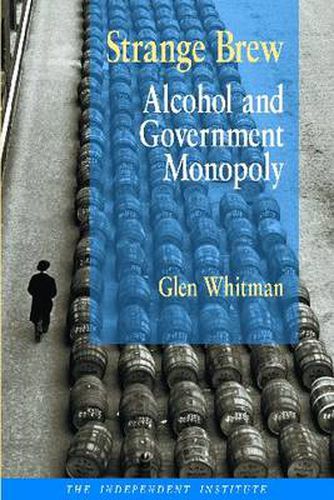Readings Newsletter
Become a Readings Member to make your shopping experience even easier.
Sign in or sign up for free!
You’re not far away from qualifying for FREE standard shipping within Australia
You’ve qualified for FREE standard shipping within Australia
The cart is loading…






When prohibition ended in 1933, laws were passed that regulated the sale of alcoholic beverages, ostensibly to protect wholesalers from the depredations of suppliers and the public from the ill effects of alcohol. This book examines the monopoly protection laws, also known as franchise termination laws, and how they lock suppliers into government-mandated contracts with alcohol wholesalers that affect consumers by raising prices and reducing the quality of alcoholic products and services. This study also investigates the notion that alcohol consumption is a sin and how legal restrictions have substituted the moral judgement of legislators for that of the consumer. The book demonstrates that the monopoly protection laws reflect powerful special interests in the political process who use such measures to control markets, shield themselves from competition and consumer preferences, and set prices with relative impunity. This book will be of great value to those in the alcoholic beverage industry as well as to students of economics, regulation, and public policy.
$9.00 standard shipping within Australia
FREE standard shipping within Australia for orders over $100.00
Express & International shipping calculated at checkout
When prohibition ended in 1933, laws were passed that regulated the sale of alcoholic beverages, ostensibly to protect wholesalers from the depredations of suppliers and the public from the ill effects of alcohol. This book examines the monopoly protection laws, also known as franchise termination laws, and how they lock suppliers into government-mandated contracts with alcohol wholesalers that affect consumers by raising prices and reducing the quality of alcoholic products and services. This study also investigates the notion that alcohol consumption is a sin and how legal restrictions have substituted the moral judgement of legislators for that of the consumer. The book demonstrates that the monopoly protection laws reflect powerful special interests in the political process who use such measures to control markets, shield themselves from competition and consumer preferences, and set prices with relative impunity. This book will be of great value to those in the alcoholic beverage industry as well as to students of economics, regulation, and public policy.